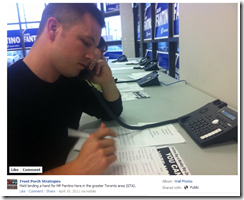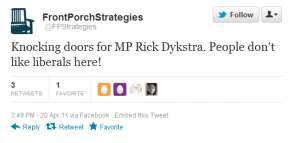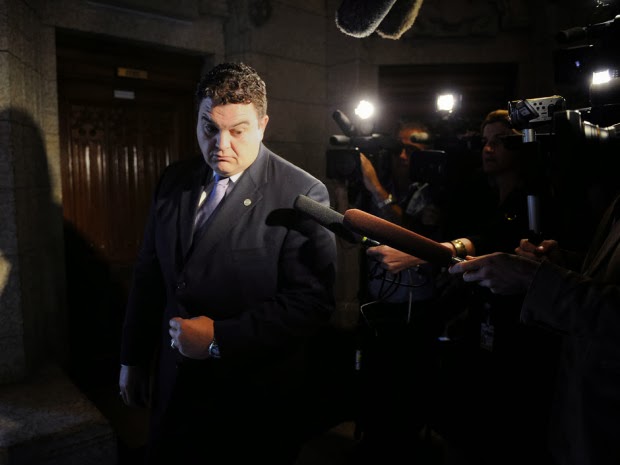
Tories Got Republican Helping Hand Last May?
The robocall scandal is taking new directions and each of which spell trouble for the Conservative Party. In light of the robocall scandal, Republican-linked firm Front Porch Strategies, which the Conservatives hired in 14 of its campaigns, admitted that it sent American campaigners to at least two Conservative-won ridings that are being investigated for election irregularities.
If this isn’t bad enough, the Vancouver Observer found that the company’s CEO Matthew Parker had advertised that he was in Assistant Defense Minister Julian Fantino’s campaign office during the 2011 election.

However, Parker would not be the only American campaigning for a Canadian MP, director of Front Porch Strategies PJ Wenzel was found helping Conservative MP Rick Dykstra, the parliamentary secretary of Immigration Minister Jason Kenney.
Considering the public approach to announcing this information, the Conservatives are left contradicted over the claim that the company only conducted phone calls.
To continue adding insult to injury, on April 20, the company tweeted that it had sent ground troops in Dykstra’s riding.
So what is wrong with having Republican campaigners come up to Canada? According to the Canada Elections Act Section 331, it is illegal for non-residents to participate directly in Canadian election campaigns. Based on this, the Conservatives may have broken election law by having American strategists mobilize to try to get a Conservative win.
“No person who does not reside in Canada shall, during an election period, in any way induce electors to vote or refrain from voting or vote or refrain from voting for a particular candidate unless the person is (a) a Canadian citizen; or (b) a permanent resident.”
If proven to be intentional, the Conservatives will face the consequences, including a $2,000 fine, 6 months in prison, or both.
“They were in Ontario for a day and a half (in April), for the purpose of acquiring new clients. They knocked on doors for roughly an hour with Rick, traditional canvassing to identify support. While waiting for a delayed meeting they made roughly 30 minutes worth of phone calls for Minister Fantino, again to identify support,” political consultant for the company, Jim Ross said.
“Other than teleforums, brief incidental volunteerism as described above over the course of a day and a half that was mostly spent trying to acquire new clients. There was no other involvement.”
Well, that isn’t entirely true, on May 2, election day, the company announced it was on the ground as “Conservatives are taking over Parliament.”
The company denied allegations that they masked illegal calls from Ohio. Ross stated that the calls were “malicious and illegal,” but “sound like errors interpreted as intentional misdirection.”
However, contrary to their remarks, a group challenging the election results of 7 ridings affected by robocalls argues that there were no changes to polling stations in 6 of the ridings affected.
“I am advised that [Vancouver Island North] is the only electoral district in the seven involved in these applications in which a change of polling station took place,” Barbara McIsaac said.
Elections Canada won’t directly comment on the case, stating that it will receive and go through complaints and consider the circumstances of the event.
Do you think the foreign presence during the last election campaign was intentional?



 More about Robocall Scandal
More about Robocall Scandal


